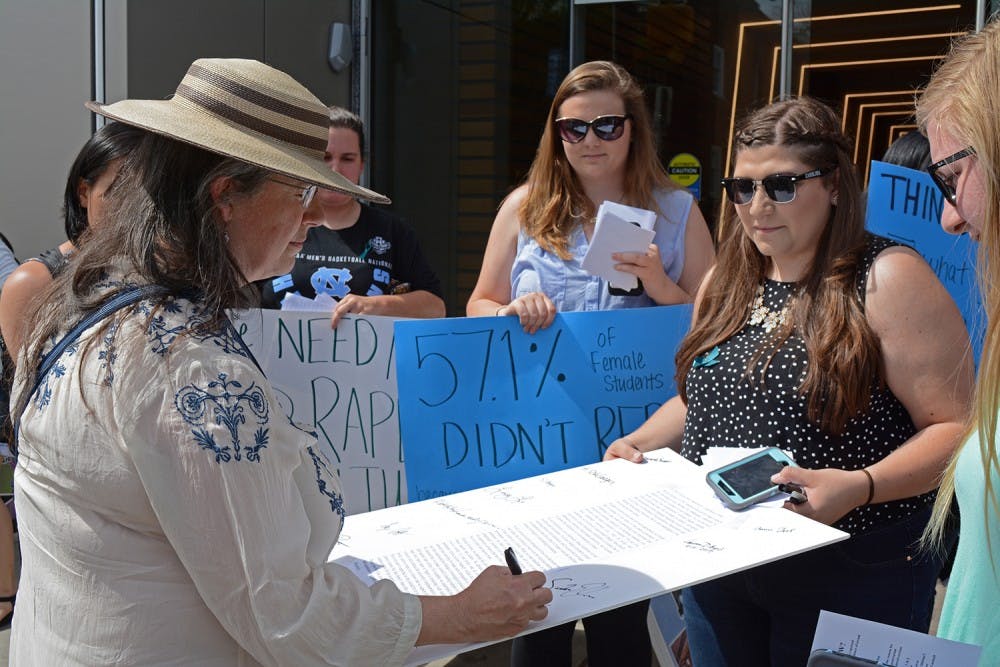Due process — it’s a term that comes up again and again in campus sexual assault debates.
Recent reports on the Department of Education’s new draft regulations regarding Title IX have centered on how the proposals could strengthen due process for accused parties in sexual misconduct investigations.
Since withdrawing Obama-era rules on how colleges should handle sexual assault cases last year, Secretary of Education Betsy DeVos has emphasized her commitment to bolstering due process in Title IX investigations to protect the rights of the accused. This raises questions about what due process actually looks like in Title IX investigations in comparison to due process applied in the regular American judicial system.
Under the Fifth Amendment, due process can be broadly defined as the Constitutional guarantee to a fair trial.
Adrienne Allison, the UNC director of Title IX Compliance, said due process in Title IX investigations is about ensuring equal treatment to both the responding and reporting party during University procedures.
“For us, maintaining a fair and equitable procedure is essential to the integrity of our process,” Allison said.
Because Title IX investigations vary from college to college, due process rights can vary as well. As long as the procedures are applied equitably to both parties, it is considered due process, said Shan Wu, a former federal sex crimes prosecutor with a focus on student defense, who is now in private practice in Washington
Benjamin Lankford, a Raleigh defense lawyer who has worked on Title IX cases, said criminal trial proceedings guarantee far more due process rights than Title IX investigations, which creates problems for the accused parties.
“You don’t have access to these other rights, so due process can be satisfied in a Title IX context with very, very bare minimum procedures safeguarding the policy,” Lankford said. “The reality is, if you want to challenge due process of a Title IX hearing, you’ve got to lose the Title IX hearing and then sue the school and go to court saying your due process rights were violated.”



